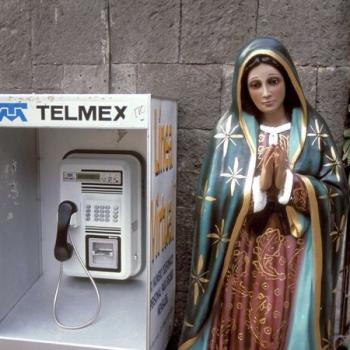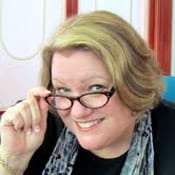I know this doesn't answer all the questions in many of your minds. All I ask as your teacher is that you approach these questions as a thinking adult. That implies questioning what you have heard around you. Unless you have done extensive research into homosexuality and are cognizant of the history of moral thought, you are not ready to make judgments about moral truth in this matter. All I encourage is to make informed decisions. As a final note, a perceptive reader will have noticed that none of what I have said here or in class depends upon religion. Catholics don't arrive at their moral conclusions based on their religion. They do so based on a thorough understanding of natural reality."
Emphasis mine. What we see, after all the high-drama of Howell's daring to speak an eternal thought that is at odds with current thinking, is an intellectual doing what intellectuals do: admitting that he is not "answering all the questions in many of your minds," while puzzling over an issue, trying to pierce the veneers of moral thought, social codes and natural reasoning, to find the core piece of human understanding that is, in fact, so distant: what our humanity means in relation to creation and God.
We see a courteous teacher with critical thinking skills and a mind trained to question and probe, trying to impart those skills onto students who have been taught that "sensitivity" trumps courtesy; they have been trained not to think, but to herd, not to probe, but to fall in line.
It was inevitable, then, that Howell would be called out for his crime, and not by one of Howell's own students, but by an un-named "friend" writing on behalf of a student who, we are told, had been offended by Howell's semester-long insistence on teaching-to students enrolled in a class entitled "Introduction to Catholicism and Modern Catholic Thought"-a Catholic understanding regarding such things as utilitarianism, sexuality and the church's natural moral theories.
Wrote the non-student complainant:
"Teaching a student about the tenets of a religion is one thing. Declaring that homosexual acts violate the natural laws of man is another. The courses at this institution should be geared to contribute to the public discourse and promote independent thought; not limit one's worldview and ostracize people of a certain sexual orientation.
. . . Also, my friend also told me that the teacher allowed little room for any opposition to Catholic dogma. Once again, he is guilty of limiting the marketplace of ideas and acting out of accord with this institution's mission and principles."
Critical-thinking skills are nowhere in evidence, here. Nor is an appreciation for mere irony. The writer calls for the promotion of independent thought and a limitless worldview by damning a professor for theorizing in opposition to the student's worldview. A course designed to familiarize a student with Catholic thought is thought divisive for attempting to remain focused on same. The "marketplace of ideas," has no room for ideas that do not conform.
I think in some ways, the Howell situation is more urgently troubling than Sherrod's. Sherrod's story illustrated to us that writers, editors, broadcasters, activists, bureaucrats and the White House are running on mere reflexiveness against perceived political black-eyes and feather-caps, with accompanying "collateral damage," and that cynical opportunism is self-defeating.
That is a grim enough message, in such serious times.
The Howell story, however, goes beyond grim: it tells us that a simple charge of thinking incorrect thoughtsand encouraging others to also dare to think, even if one comes to a different conclusion ("All I ask as your teacher is that you approach these questions as a thinking adult . . .All I encourage is to make informed decisions...") is enough to destroy a career and assign a corrosive label, at whim. Such actions do not encourage future development of critical thinking skills; they encourage a clamping down, not an opening, of the human mind.
Shirley Sherrod did not deserve to lose her job, not seen in context. In context, nor does Professor Ken Howell. Both of them, ultimately, were urging their audiences to move beyond comfort zones, assumptions and a perceived conventional wisdom - to entertain a broader range of thought, and see where it leads.
That used to be considered a good thing, even a liberal thing.





